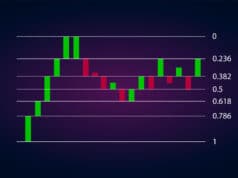Overview
The forex market presents traders with a plethora of lucrative opportunities aside from self-directed trading. With the proper knowledge and experience, you can choose from a range of interesting career paths within the industry, such as prop trading, account managing, and even white label brokerages.
One avenue that is quite well-known but not thoroughly understood is broker affiliate programs. This business model forms a massive part of all brokers’ client acquisitions and pays fairly handsomely for those who are successful.
Essentially, any trader becomes a partner with a broker they personally recommend to other prospective clients with little aftersales responsibilities. These programs aren’t limited only to actual traders but also non or less-active individuals with some industry knowledge.
Affiliate marketing is prominent in most service and product-based companies globally as a way for users of those services and products to earn a sizeable income. Despite being highly competitive, affiliate programs are attractive because of their compensation.
The concepts of affiliates in most other industries are quite similar within the currencies market. Yet, as expected, there are some key distinctions you should note. Hence, this article will outline what a forex broker affiliate is, how the process works, the compensation methods, and how to choose the best program.
What is a forex broker affiliate?
At its core, affiliate marketing is a common type of advertising where a company (typically internet-based) pays a commission to a third-party publisher for directing new clients to their business.
Depending on the arrangement, the referrer will earn when their referred clients purchase a product/service. In the context of forex, the goal is to refer new traders to a broker.
As with most affiliate schemes, the referrer does little or no service work to the clients as much of this is ordinarily handled by the firm in question. For the most part, the affiliate earns a commission when the trader executes a position on the broker’s platform.
Like any marketing program, affiliates need to establish a strongly recognizable presence online, namely via a social media page, website, or good ol’ fashioned word-of-mouth.
How do broker affiliates work?
Let’s get into the nitty-gritty of how the affiliate models function in forex. So, a person usually approaches a broker they are interested in partnering with. The said institution has an agreement in place individuals sign.
Aside from the typical terms, conditions, and violation rules, the person states how they plan to acquire new customers through the various channels and estimate many monthly.
Afterward, you are assigned a unique affiliate link identifying your ID as a registered affiliate with the broker. Additionally, the broker should provide some marketing material in the form of banners, landing pages, widgets, videos, tutorials, logos, and avatars with the link secretly attached.
Most brokers can even provide billboard ads, brochures, print ads, and rollups to ensure a maximum presence for physical events. Similarly, the company will assign the affiliate link to any potential acquisition from this material.
When a would-be client clicks on the link, they are directed to the broker’s landing page for a prospective sign-up.
The link is designed such that even if the customer reaches the broker’s sign-up page differently, the broker can still track the lead from the affiliate (though not usually after 30 days from when the affiliate link was clicked).
Finally, the client would need to meet the minimum deposit and execute a position. It is only at this stage when the referrer starts earning a defined commission per trade or a monthly lot allocation depending on the compensation model.
The compensation models of affiliates
Compensation models have evolved within the forex industry. Before, the CPL or cost per lead method was present where affiliates earned only from referring a lead. However, this is far less common nowadays.
The three most prominent models used by brokers are earning through lot rebates, CPA (cost per acquisition), and revenue sharing.
- Rebates: A rebate is a small commission earned from every lot done by the referred trader. For instance, an affiliate may receive $15 for every standard lot their referee executes, provided a few execution terms and conditions are met.
This model relies on high volume as the commissions are small. However, the affiliates continue to earn the rebates for a lifetime provided clients continue trading with the broker.
Rates depend on the company in question and the popularity of the traded instruments. Less-traded markets like exotics and metals tend to command slightly higher commissions while more commonly traded pairs demand less.
- CPA: Here, the affiliate receives a one-time fee for every referred customer provided they deposit a certain minimum and execute a defined amount of lots, usually in 30 days. Commissions vary anywhere from $50 to $1000 per client depending, again, on the broker and the country location of the trader.
Although this model doesn’t depend on high volume to maximize the affiliate’s earning potential, referees need to deposit slightly more funds and trade a fairly high number of lots in a month.
- Revenue or spread sharing: This commission structure refers to receiving a percentage of the referred trader’s trading volume, such as a 20% or a fraction of the generated spreads. Similar to rebates, this model thrives on high volume but is active for the lifetime of the trader staying with the broker.
Final word
It’s easy being enticed by the handsome compensation schemes and quickly forgetting the time-consuming and often costly work involved. The competition in nearly all online-based businesses is high as affiliates are all seeking to grab the attention span of their aspiring clients.
Choosing the best affiliate program is similar to picking a broker in ordinary self-directed trading circumstances; reputation is everything.
It would be best if you stuck to appropriately regulated and transparent brokers with many years of experience offering recognized trading platforms, favorable trading conditions, a wide selection of financial instruments, several payment methods, and excellent customer service.
These qualities should ensure the broker will fulfill their agreements and compensate what is due to their affiliates. Secondly, many potential affiliates may wonder which compensation model is worthwhile.
CPA is probably the more attractive option as it only requires fewer clients. But, the disadvantage is the one-time commission only applies when the traders meet the minimum execution requirements, which are often high.
However, perhaps the more important question is the methods of acquiring clients. As you can imagine, one could utilize several digital marketing methods, some cheap and some expensive. The key is to provide value first to clients instead of direct hard selling.
Ideally, prospective customers should already derive some value from the affiliate first from where they are most present, whether social media influencing, writing posts or blogs, providing signals, account managing, or education.




